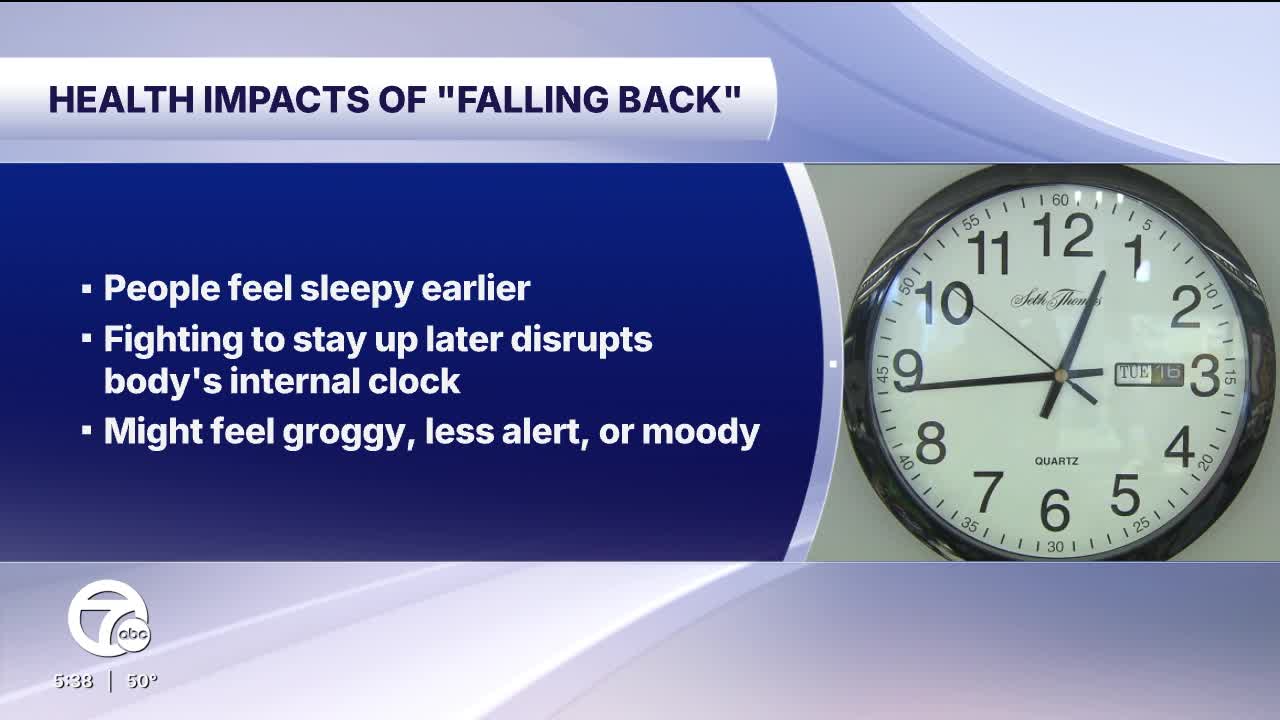(WXYZ) — In today’s Health Alert, this Sunday, we “fall back” as Daylight Saving Time comes to an end. While that means an extra hour of sleep, the time change can also throw off your body’s natural rhythm and affect sleep.
It sounds great, getting an extra hour of sleep. But there can be some side effects. Sunset will move from 6:30 pm to 5:30 pm, so it’s darker an hour earlier. And sunrise shifts too, from about 8 to 7 am, so it’s lighter earlier in the morning.
Because of that shift, most people start feeling sleepy earlier in the evening — their bodies still think it’s an hour later. But instead of going to bed when they’re tired, many stay up to match the new clock time.
When you push yourself to stay up later, you’re fighting your body’s internal clock, or circadian rhythm. That can make it harder to fall asleep or stay asleep over the next few nights. You might feel groggy, less alert, or even moody the following day.
Nearly 40% of U.S. adults regularly get fewer than 7 hours of sleep. That can put your brain and body at risk for long-term health issues. In my opinion, the “fall back” change is a good time to revisit sleep habits.
Sleep is so important. I tell my patients that sleep is both brain food and immune system food.
Now, the best thing you can do is keep a consistent routine: go to bed and wake up at the same time every day. If you sleep longer on weekends, this may signal a sleep problem or chronic sleep debt.
Also, avoid eating or exercising right before bed. Both can make it harder to stay asleep. And about an hour before bedtime, try staying off your phone and the TV. The blue light from screens can reduce melatonin, the hormone that helps you fall asleep.
If you can, get some morning sunlight after the time change. Natural light helps your brain adjust to the earlier sunrise and boosts daytime energy. And skip caffeine and alcohol in the evening, as they can interfere with quality sleep.
If you’ve made these changes and still aren’t sleeping well after a few weeks, talk to your doctor. There could be an underlying sleep disorder or health issues that need attention.
Overall, it's best to listen to your body and head to bed when you feel tired—it’ll help you stay rested as your body adjusts.
This Week on the Dr. Nandi Show
ADHD, or attention deficit hyperactivity disorder, is the most commonly diagnosed psychiatric disorder in children - but it doesn’t stop there. An estimated 3-5% of American adults live with ADHD as well. Dr. Partha Nandi, MD, and psychiatrist Dr. Ben Biermann break down what ADHD really is, how it’s diagnosed, and effective ways to manage it. Plus, Jodi, a mother of five, shares how her son’s third-grade diagnosis impacted not only him but the entire family. Tune in this Sunday, November 2nd, at 1:00 PM.




